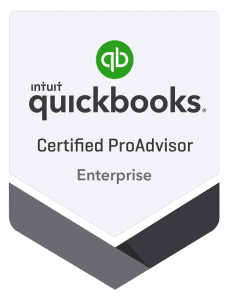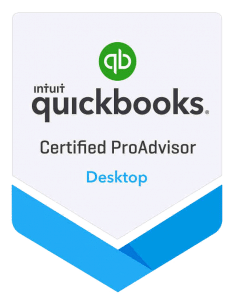Sales tax reporting probably isn’t the favorite part of running a business, but it’s one of the parts that can quickly cause headaches when something’s off. One small error in your numbers can lead to bigger issues like filing mistakes, possible penalties, or confusion during audits. When your sales tax totals don’t match what you expected, it usually means there’s a gap somewhere in your records, and figuring out where it started is key.
Catching these problems early can save time and stress down the road. It can also help keep things running smoothly with your local and state tax agencies. From data entry problems to recent tax rate changes, several things can cause your sales tax numbers to shift unexpectedly. Understanding those problem areas puts you in a better position to catch them early and stop them from happening again.
Common Causes Of Sales Tax Discrepancies
If you’re looking at your records and something doesn’t look right, you’re definitely not alone. There are a few usual suspects when sales tax numbers don’t line up. Most of them are simple mistakes or things that happen when processes aren’t being followed properly.
Here are some of the most common issues that can throw your sales tax off:
– Errors in data entry
Mistyped amounts, duplicated entries, or missing invoices can create totals that are either too high or too low. This usually happens during manual entry or when batches of receipts get entered all at once without proper checks.
– Tax rate changes
Sales tax rates can shift without much warning. If your system or software hasn’t been updated to reflect new rates, your records may not match the rates you’re actually being taxed on.
– Inaccurate sales records
Sometimes the issue lies in how you’re tracking sales. If cash and card sales aren’t recorded correctly or a refund wasn’t entered, your data won’t add up correctly at the end of the month.
– Misclassified transactions
Not all sales are taxed the same way. A taxable sale might accidentally be marked tax-exempt, or vice versa. This happens often with service-based versus product-based items or transactions that occur across different states.
For example, imagine a small shop that sells online and in-person. If one of their staff marks certain online orders as tax-free by mistake, but sales tax was actually collected, that mismatch will show up during reconciliation. It might not be obvious at first, but over time, those small issues start to cause bigger problems.
Immediate Steps To Take When You Notice A Discrepancy
It’s frustrating when your numbers don’t match up, especially if you’re working against a deadline or preparing to file. The good news is that most of the time, you can fix things with a little bit of digging and double-checking.
Here are some steps to help pinpoint the problem and clean up the mess:
1. Review and compare your records
Go back through your most recent sales entries. Are all the days accounted for? Check for missing invoice numbers, duplicate sales, or entries that look out of place.
2. Check for recent tax rate updates
Visit your state or local tax authority’s website and look for any recent rate changes. If your accounting system isn’t set to update automatically, this could be where the problem comes from.
3. Revisit transaction classifications
Search for patterns in how items or services are marked. Were any taxable products labeled incorrectly as tax-exempt? Were out-of-state transactions recorded using the right rules?
4. Use your accounting software tools
Most systems have built-in reports that highlight tax collected, sales by category, and other helpful details. Use those reports to get a clear picture of what’s been recorded versus what’s been filed.
These steps help you trace the error piece by piece rather than guessing where the problem might be. Even if you don’t fix it right away, getting a clear view of where things are off makes it easier to talk to a professional when it’s time to bring someone in for support. It’s a process worth revisiting monthly to help catch new issues early.
Preventing Future Discrepancies
The best way to handle discrepancies in sales tax reporting is to prevent them from happening in the first place. There are a few proactive steps that can greatly reduce the chances of errors. Regular audits and reviews of your sales data can catch mistakes before they become bigger problems. Set a routine schedule to go through your reports and verify that everything matches up. This habit can uncover patterns and help you address minor issues before they grow.
Training your staff is also important. Ensure that everyone involved in handling sales data understands the procedures for entering and categorizing transactions. When the whole team is on the same page, the chance for missteps decreases.
Keep up with tax rate changes by subscribing to updates from your local tax authorities. This way, any rate changes won’t catch you by surprise and will be reflected accurately in your records.
Reliable accounting software is another powerful tool in your toolkit. It can automate many aspects of sales tax calculations, making it easier to avoid manual errors. Choose software that updates tax rates automatically and provides comprehensive reporting features.
Why Professional Sales Tax Reporting Services Are Essential
Even with the best preparations, sales tax reporting can often get complicated. This is where professional sales tax reporting services can make a real difference.
When you bring in experts, you get a second set of trained eyes that can spot errors quickly. They know what to look for and often uncover problems that might otherwise fly under the radar. Their role also includes making sure everything meets current tax rules. Tax regulations shift regularly, but a skilled professional stays informed and ensures your reports remain on track.
Errors in reporting can lead to fines, interest charges, or audits. Professional services help you avoid those headaches altogether. They make sure everything adds up correctly, which gives you peace of mind and lowers your risk of facing unexpected costs.
On top of that, personalized service means you get help specific to your business. Whether you need help sorting out misclassifications or understanding multi-state rules, these experts can guide you each step forward. That kind of one-on-one support makes a big difference when you’re trying to stay organized and confident in your reporting.
Keep Sales Tax Reporting Running Smoothly
Maintaining accuracy in your sales tax figures isn’t a one-time fix. It’s something that works best through consistent checks, updated tools, and ongoing support.
Think of it like keeping your workspace tidy. It’s easier to clean up a little each week than to deal with a big mess after months of neglect. Make it part of your business routine to review your numbers, double-check changes in tax rates, and train your team regularly. That small commitment up front can help you avoid major stress later.
Accounting software does a lot of the heavy lifting, especially when it’s set to pull updates and build out detailed reports. Still, the human side matters just as much. Having trained staff who understand the rules will reduce simple mistakes. And when things get beyond your internal team’s knowledge, that’s a good sign it may be time to call in a professional.
With all parts working together, your sales tax reports don’t need to be a guessing game. Instead, you can create a system that runs on accuracy, preparation, and support. Staying ahead keeps your business out of trouble and moving forward.
Ready to simplify your sales tax processes? Partner with Cloud Bookkeeping for expert help through our sales tax reporting services. Let our team handle the details so you can stay focused on what matters most—growing your business with confidence.






